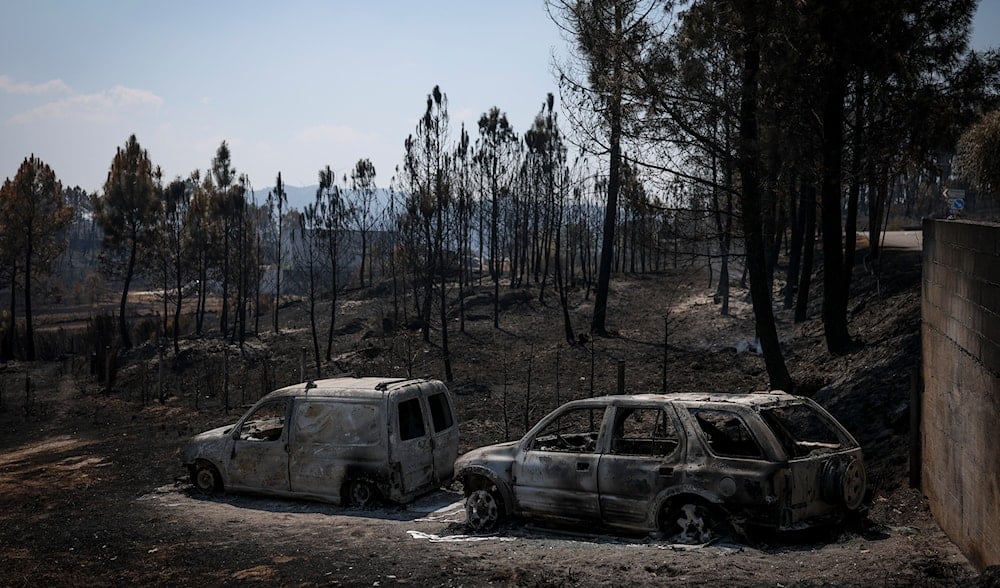Portugal now facing costs of its largest-ever wildfire
Portugal faces the aftermath of the worst wildfire in history, which has burned 64,000 hectares as climate change worsens fire risks.
-

Burnt cars are pictured during a wildfire in Palhais village in Trancoso, Portugal on August 20, 2025. (Photo by Patricia DeMelo Moreira/AFP)
Portugal faces the aftermath of the most destructive wildfire in its history, which scorched 64,451 hectares (160,000 acres) of land across seven municipalities in the central districts of Coimbra, Guarda, and Castelo Branco. The blaze, triggered by lightning strikes, raged for 11 days before firefighters finally brought it under control on Sunday.
Nearly 1,000 firefighters and 300 vehicles remain on the ground to prevent flare-ups, though authorities expect to gradually scale down operations. The fire consumed an area larger than the country of Bahrain, or nearly half the territory of Luxembourg, making it the most destructive blaze in Portuguese history, surpassing the 53,000 hectares burned in October 2017.
The disaster comes against the backdrop of Portugal’s troubled wildfire history. The year 2017 remains the country’s deadliest fire season, with more than 563,000 hectares destroyed and 119 lives lost, including the tragedy in Pedrógão Grande where 66 people perished, many trapped in their cars.
Since July 2025, wildfires have already ravaged 278,000 hectares across Portugal, killing four people and destroying homes and crops. Neighboring Spain has faced a similar ordeal, with major blazes killing four and burning more than 380,000 hectares.
Wildfires claimed at least 4 lives and ravaged 403,000 hectares across #Spain and more than 261,000 hectares in #Portugal
— Earth42morrow (@Earth42morrow) August 23, 2025
VC: UME #Wildfire #Heatwave #Forestfire #Fire #Bushfire #incendios #Climate #Weather #Viral pic.twitter.com/hRGa4A4i0W
Government response and future outlook
In response to the ongoing emergency, the government has rolled out aid packages for reconstruction and farming support. Firefighting capacity has been bolstered with international aircraft and new helicopters, while long-term strategies are underway through the “Plano Floresta 2050,” a €6.5 billion program aimed at improving forest management and reducing fire risks.
Experts warn, however, that climate change is reshaping the Iberian Peninsula into one of Europe’s most fire-prone regions. Longer, hotter summers with stronger winds are creating what environmental groups call “super fires,” blazes that cannot be controlled by firefighting alone.
One factor fueling the crisis is Portugal’s heavy reliance on eucalyptus plantations, which cover 26% of the country’s forests. These highly flammable trees, cultivated mainly for the paper industry, burn quickly and spread fires rapidly through flying bark and oil-rich leaves.
Another challenge is rural abandonment. With less than 20% of Portugal’s population living in interior regions, vast stretches of land are left unmanaged. Over 86% of forests are privately owned, many in small, fragmented plots, which makes coordinated fire prevention extremely difficult.

 3 Min Read
3 Min Read










